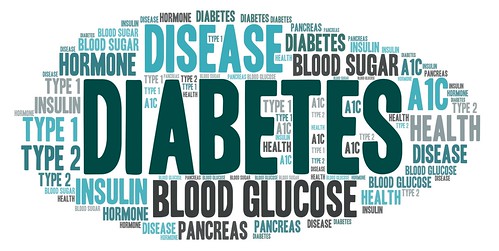
By: EpicTop10.com
Medical Fact or Fiction: Diabetes
Diabetes effects 38 million people world wide, it has doubled in the last 20 years. It is a chronic condition, there are 3 types, Type 1, Type 2 and gestational diabetes. Type 1 Diabetes is an autoimmune reaction where your body can not produce insulin. It can be diagnosed at any age, and will be required to administer insulin daily. Type 2 diabetes can be diagnosed at any age, usually at an older age, your body can not produce enough insulin to regulate the blood sugar in the body. Gestational Diabetes is diagnosed in pregnant women, and is a predisposition to be diagnosed with diabetes later in life.
Signs and symptoms of Diabetes:
- Urinating a lot especially at night
- always thirsty
- Always hungry
- Blurry Vision
- Fatigue
- cuts that do not heal
- tingling to fingers and feet
Type 1 Diabetes:
- Develop at any age
- Body does not produce insulin (insulin needs to be administered multiple times a day)
- Parents manage daily for children and keep in close contact with caregivers and schools that help manage the disease
Type 2 Diabetes:
- Usually diagnosed at a later age
- pancreas does not produce enough insulin to bring high blood sugars down
- Medications, diet and exercise are the treatment plans
- Type 2 Diabetes can be reversed with diet and exercise
Gestational Diabetes:
- diagnosed during pregnancy
- the body does not produce insulin
- Usually goes away after delivery of the baby
The above video, gives examples of myths in diabetes and what is actually a fact. Today there are so many websites, social media platforms etc, that have information about diabetes. How do we know what is true or false?
Countless people worldwide suffer from diabetes, a chronic illness that needs to be adequately managed and educated about to provide the best possible health results. It is essential to comprehend the complexities of diabetes, whether it is Type 1 or Type 2, and to put into practice practical control techniques. Understanding the facts and the Myths can help better understand the disease. There is so much information out there, and I will love to condense it to a minimal of what you need to know.
Diabetic Diet: Myths
Here are some examples:
- Eating Sugar causes diabetes
- Carbohydrates are the enemy
- Do not eat starches
- Fruit is bad
Diabetic Diet:

Balanced meals will avoid a fluctuation in blood sugar levels. Including in your diet whole foods instead of processed foods, fewer added sugars (white bread, rice, and pasta), increase vegetables non-starchy ones as broccoli, spinach or green beans. Carbohydrates do increase blood sugar levels some quicker then others. Apple juice will raise the blood sugar quicker than eating a fresh apple.
- Fresh Fruit- Berries, Apples, Oranges, bananas
- Carbohydrates (Carbs)- Depends on each individual, some people may need more some less (consult with MD)
- Starches- Sweet Potatoes
- Vegetables- Broccoli, Cauliflower, Brussels Sprouts, Green Beans
- Grains- Multigrain (breads, pasta, oatmeal, and rice)
Signs and symptoms of High Blood Sugar and Low Blood Sugar
High Blood Sugar:
- Increased Thirst/ Dry Mouth
- Frequent Peeing
- Headache
- Blurred Vision
- Tiredness
Low Blood Sugar:
- Fast heartbeat
- Sweating
- Shaking
- Anxiety
- Dizziness
- Hunger
- Confusion
Treatment for signs and symptoms of high and low blood sugar vary:
If your blood sugar is below 70- consume 15 grams of a carbohydrate ( 4 ounces of juice, 1 tablespoon of honey, sugar, glucose tablets, hard candy, or glucose gel) and recheck blood sugar.
If your blood sugar is above 200– Drink water, administer insulin, take missed dose of medication, and Exercise, Notify MD if greater than 350
Pharmaceutical Treatment Plans for Type 1 and Type 2 Diabetes:
Diet and exercise is a treatment that is used in both type 1 and type 2. Being cautions and checking blood sugars frequently can help decrease symptoms of hypoglycemia as diet and exercise will lower the blood sugar. There are many types of medications to treat diabetes, long and short term insulin, oral medications like metformin, and/or use of an insulin pump. Below is the general treatment for each type:
- Type 1- Insulin
- Type 2- Oral medications, insulin, Diet and Exercise
Diabetes effects not only your pancreas it is a chronic disease that effects all body systems, vision, kidney, vascular and cardiac. Keep appointments with your doctors for continuous monitoring. There is a lot of information out there, hope this help decrease some of the myths that you have heard or read about. Always consult with your doctor before taking any medications, starting an exercise regimen, and adding any dietary supplement.
Here is a clip of the stigma about diabetes that you can enjoy!
References
https://diabetes.org/about-diabetes/warning-signs-symptoms
https://www.cdc.gov/diabetes/basics/diabetes.html
Centers for Disease Control and Prevention. (2022, June 20). Managing diabetes at school.Centers for Disease Control and Prevention. https://www.cdc.gov/diabetes/library/features/managing-diabetes-at-school.html

Hello there.
I thought this blog post on diabetes was extremely informative and I learned a lot. Some of the highlights to me were the clear and easy to read text and layout. The organization was very reader friendly. The content flowed in a sensible way. I learned about the different types of diabetes, symptoms often related to diabetes, and common treatments for it. Overall great job on the blog post.